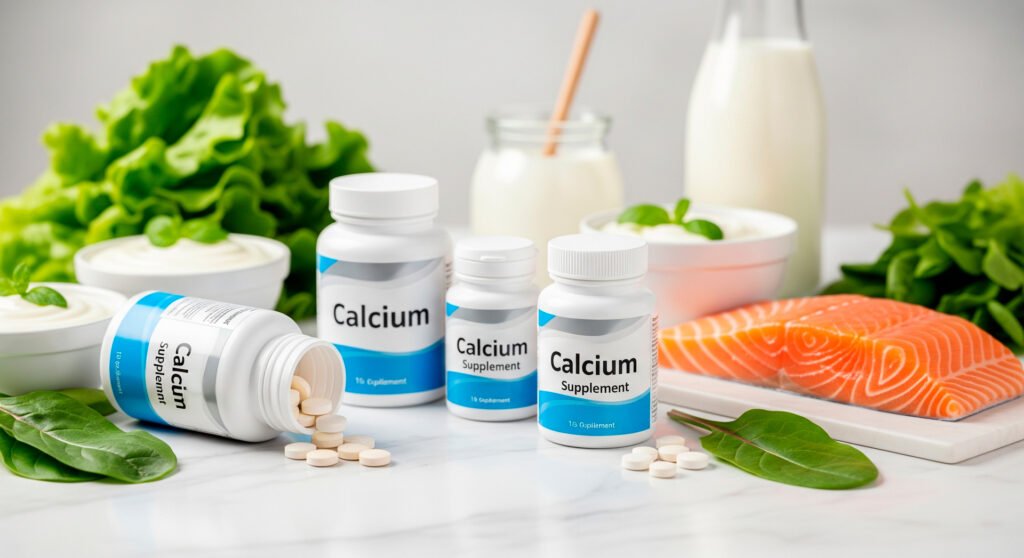Page Contents
ToggleLife after menopause doesn’t have to feel like an uphill battle. If you’re wondering what comes next after your periods have stopped for good, you’re not alone. Millions of women enter postmenopause health territory each year, and while this new chapter brings changes, it also opens doors to renewed vitality when you know how to support your body naturally.
Understanding this phase is crucial because postmenopause lasts for the rest of your life once you reach it. The good news? Many of the uncomfortable symptoms that may have plagued you during menopause often become milder or disappear entirely. Let’s explore what postmenopause really means and how you can navigate this stage with confidence and natural wellness strategies.
For some women, this is also the time to consider targeted natural hormone support, such as MenoRescue, which is formulated to help balance key hormones and promote overall vitality.
What Is Postmenopause and When Does It Begin?
Postmenopause officially begins when you’ve gone 12 consecutive months without a menstrual period. This milestone typically occurs around age 52, though the exact timing varies for each woman. Unlike perimenopause, which can fluctuate, postmenopause is a permanent state where your ovaries have stopped releasing eggs and your reproductive years have ended.
During this stage, your hormone levels remain consistently low, particularly estrogen, which affects various aspects of your health. While you can no longer become pregnant naturally, this phase brings its own opportunities for focusing on long-term wellness and vitality.
Common Postmenopause Symptoms You Might Experience
Many women find that menopause symptoms become less intense during postmenopause, but some may linger due to continued low hormone levels. The most frequently reported symptoms include:
- Hot flashes (though typically milder than during menopause)
- Night sweats
- Vaginal dryness and discomfort
- Mood changes including anxiety or depression
- Sleep disturbances
- Decreased energy levels
- Changes in sexual desire
It’s important to note that some women experience no symptoms at all during postmenopause, while others may continue to deal with various degrees of discomfort. Every woman’s experience is unique, and symptoms that interfere with daily life deserve attention and care.
If lingering menopause-related symptoms like hot flashes, mood swings, or sleep issues are still affecting you, MenoRescue offers a natural approach to help manage them.
Key Health Risks During Postmenopause
Understanding the health risks associated with postmenopause empowers you to take proactive steps. The decrease in estrogen production affects several body systems, creating increased vulnerability to certain conditions.
Bone Health Concerns
Bone density loss accelerates significantly during postmenopause. Women can lose 1-2% of bone density annually, with some losing up to 25% or more in the years following menopause. This rapid loss increases the risk of osteoporosis and fractures.
The connection between estrogen and bone health is direct – estrogen helps maintain calcium absorption and bone strength. Without adequate estrogen, bones become more porous and fragile over time.
Cardiovascular Health Changes
Before menopause, estrogen provides natural protection against heart disease. During postmenopause, this protection diminishes, increasing risks for:
- Heart disease
- High blood pressure
- High cholesterol
- Stroke
Additionally, many women become less physically active during this stage, which can compound cardiovascular risks.
Genitourinary Health Issues
Decreased estrogen levels cause vaginal tissues to become thinner and drier, leading to a condition called genitourinary syndrome of menopause. This can result in:
- Persistent vaginal dryness
- Painful intercourse
- Urinary tract infections
- Bladder control issues
Natural Approaches to Support Postmenopause Health
While hormone therapy remains the most effective medical treatment for severe symptoms, many women prefer exploring natural alternatives first. Here are evidence-based strategies that can support your health during postmenopause.
Nutritional Support for Strong Bones

Calcium supplements become particularly important during postmenopause. The recommended daily intake is 1,200 mg for women over 50. Natural food sources include:
- Dairy products like yogurt and cheese
- Leafy greens such as spinach and kale
- Fortified plant-based milks
- Sardines and canned salmon with bones
- Fortified cereals

Vitamin D supplementation is equally crucial, as it enhances calcium absorption. Many women need 800-1,000 IU daily, though individual needs may vary.
Heart Healthy Lifestyle Modifications
Supporting cardiovascular health naturally involves comprehensive lifestyle approaches:
- Regular physical activity: Aim for at least 150 minutes of moderate exercise weekly
- Heart healthy diet: Focus on whole foods, lean proteins, and plenty of fruits and vegetables
- Stress management: Practice relaxation techniques like meditation or yoga
- Weight management: Maintain a healthy weight to reduce cardiovascular strain
Some women also find that hormone-balancing supplements like MenoRescue help support overall well-being during this stage, making it easier to stay active and maintain heart health.

Managing Vaginal Dryness Naturally
Several natural approaches can help address vaginal dryness:
- Natural lubricants: Coconut oil or aloe vera-based products
- Regular sexual activity: Helps maintain vaginal tissue health
- Kegel exercises: Strengthen pelvic floor muscles
- Adequate hydration: Drink plenty of water throughout the day
When to Seek Professional Help
While many postmenopause symptoms can be managed naturally, certain situations require medical attention. Contact your healthcare provider if you experience:
- Any vaginal bleeding (this is never normal during postmenopause)
- Severe or worsening symptoms that interfere with daily life
- Signs of depression or severe mood changes
- Unusual pain or persistent discomfort
Regular health screenings become even more important during postmenopause. Continue scheduling annual wellness visits, mammograms, pelvic exams, and bone density screenings as recommended by your healthcare provider.
Creating Your Personal Wellness Plan
Success in postmenopause comes from taking a proactive approach to your health. Consider these steps:

- Assess your current symptoms and their impact on your quality of life
- Evaluate your risk factors for osteoporosis and heart disease
- Create a comprehensive nutrition plan focusing on calcium, vitamin D, and heart-healthy foods
- Establish a regular exercise routine that includes both cardio and strength training
- Build stress management practices into your daily routine
- Schedule regular health screenings and maintain open communication with your healthcare team
Looking Forward: Embracing This New Chapter
Postmenopause health isn’t about accepting limitations – it’s about understanding your body’s new needs and responding with targeted support. Many women find this stage of life incredibly freeing, with relief from menstrual cycles and often from the more intense symptoms of perimenopause and menopause.
While the decrease in estrogen presents certain challenges, knowledge and proactive care can help you maintain vitality, strength, and wellness for decades to come. The key is working with your body’s changes rather than against them, using both natural approaches and medical support when needed.
But if joint discomfort or stiffness has become part of your postmenopausal journey, Joint Genesis may offer natural support to help improve flexibility and comfort.
Remember that every woman’s journey through postmenopause is unique. What works best for you may be different from what works for others, and that’s perfectly normal. Stay connected with healthcare providers who understand natural health approaches, and don’t hesitate to advocate for the care and support you need.
That includes exploring science-backed joint supplements like Joint Genesis, especially if maintaining mobility is one of your goals during this stage of life.
By focusing on evidence-based natural strategies, maintaining regular health screenings, and staying attuned to your body’s signals, you can navigate postmenopause with confidence and vitality. This phase of life brings its own opportunities for growth, wellness, and renewed focus on what matters most to you.
Sources
This article was inspired by and adapted to better serve the readers of Best Natural Health Products from “Postmenopause”. Cleveland Clinic. Available at: https://my.clevelandclinic.org/health/diseases/21837-postmenopause. Accessed on: June 17, 2025.
Sarah Jenkins is a Senior Wellness Researcher and former science educator. She specializes in "Ingredient Provenance"—decoding complex clinical studies to ensure every product is safe and historically verified. Sarah translates dense medical data into actionable advice for families and individuals.
